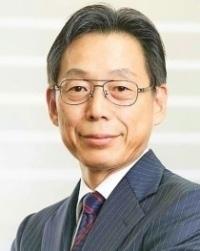
4 minute read
Supporting the PUI to strengthen the positive global impact of nuclear energy
Takeshi Hikihara is the Ambassador and Permanent Representative of Japan to the International Organizations in Vienna. He has more than 35 years of experience in foreign affairs and diplomacy.
By Takeshi Hikihara
The growing number and evolving needs of countries joining the IAEA call for timely assistance with the peaceful use of nuclear science and technology. The Peaceful Uses Initiative (PUI) plays an invaluable role in strengthening and supporting peaceful applications of nuclear technology and in providing assistance to countries worldwide. It does so by providing resources and supplementing the IAEA’s Regular Budget and Technical Cooperation Fund (TCF), which help to ensure countries can continue to get the support they need when they need it.
Japan highly appreciates all the PUI has done since its establishment in 2010. The country has steadfastly supported the initiative with contributions that amount to more than €38 million to date. This has helped to fund 86 IAEA projects in a range of areas, such as cancer diagnosis and treatment, infectious diseases, food and agriculture, water resource management, environmental protection, nuclear safety and radiation protection, and nuclear infrastructure development.
Supporting the PUI
Japan made its first contribution to the PUI in 2011 and has consistently supported the initiative ever since. There are three major reasons behind Japan’s decision to support the PUI. The first is that the PUI plays an important role in supporting the Treaty on the Non-Proliferation of Nuclear Weapons (NPT), an international agreement that seeks non-proliferation, disarmament and peaceful use of nuclear energy. The NPT states that any country that meets its non-proliferation obligations has the “inalienable right” to research, develop and use nuclear energy for peaceful purposes. Japan’s US $25 million pledge at the 2015 NPT Review Conference highlighted its intention as a State Party to the NPT to support and promote peaceful uses of nuclear energy in the IAEA’s Member States.
The second is the impact of the PUI on efforts to achieve the United Nations Sustainable Development Goals (SDGs). Of the 17 SDGs, 9 are directly related to the IAEA’s activities. When Japan considers its PUI contribution for IAEA projects, the SDGs are an important driver. This is also in line with the declaration made by IAEA Member States in November 2018 at the IAEA Ministerial Conference on Nuclear Science and Technology, which was co-chaired by Japan. The declaration underscored how nuclear science and technology can contribute to the achievement of the SDGs.
The third is how support through the PUI contributes to the IAEA’s Renovation of the Nuclear Applications Laboratories (ReNuAL) projects. This multi-phase modernization
project sets out to ensure the IAEA’s nuclear applications laboratories are equipped to provide countries with technical assistance to face global challenges in the areas of food and agriculture, human health, the environment, and the development and use of nuclear scientific instruments. The project’s unprecedented scale and budget has been supported by almost €40 million in PUI contributions from 42 Member States, including €6.5 million from Japan.
COVID-19 and beyond
The real-life impact of the PUI can be seen in the assistance provided to Member States in combatting the COVID-19 global pandemic. The PUI’s agility and flexibility made it a critical channel for supplementing the IAEA’s budget and providing support quickly. Through the PUI, Japan provided €4 million in May 2020 for the IAEA to help its Member States in the fight against COVID-19. Of the total sum, €3 million was earmarked for virus detection kits and related laboratory supplies for Member States in need. The other €1 million is to be used in line with Zoonotic Disease Integrated Action (ZODIAC), a new IAEA initiative for fighting COVID-19 and other zoonotic diseases, which are diseases that spread from animals to humans.
The PUI has also been an avenue for providing support to the IAEA Marie SkłodowskaCurie Fellowship Programme, which aims to encourage women to pursue a career in nuclear science and technology, nuclear safety and security or nuclear non-proliferation. As the programme is not part of the IAEA’s Regular Budget or funded by the TCF, Japan decided to provide an additional PUI contribution of €500 000 to directly support this important initiative led by IAEA Director General Rafael Mariano Grossi. While most of the support received through the PUI comes from governments, the initiative can also be used by the private sector to make contributions. In October 2017, the Japanese manufacturer Shimadzu Corporation donated mass spectrometry equipment, and provided technical support for the development of methods for using this equipment, through the PUI. This has opened the door to in-kind contributions to the PUI.
Japan considers the PUI to be essential and intends to continue fully supporting it as an important tool to bolster the IAEA’s activities and to promote the peaceful uses of nuclear energy. Further and broader support for the PUI from IAEA Member States and other relevant parties will enhance the value of this useful tool and further expand the positive impact of the peaceful applications of nuclear technology. Japanese Ambassador Takeshi Hikihara (right) accompanied IAEA Director General Rafael Mariano Grossi during his visit to the Shimadzu Corporation in Kyoto, Japan, in February 2020.

(Photo: D. Calma/IAEA)









